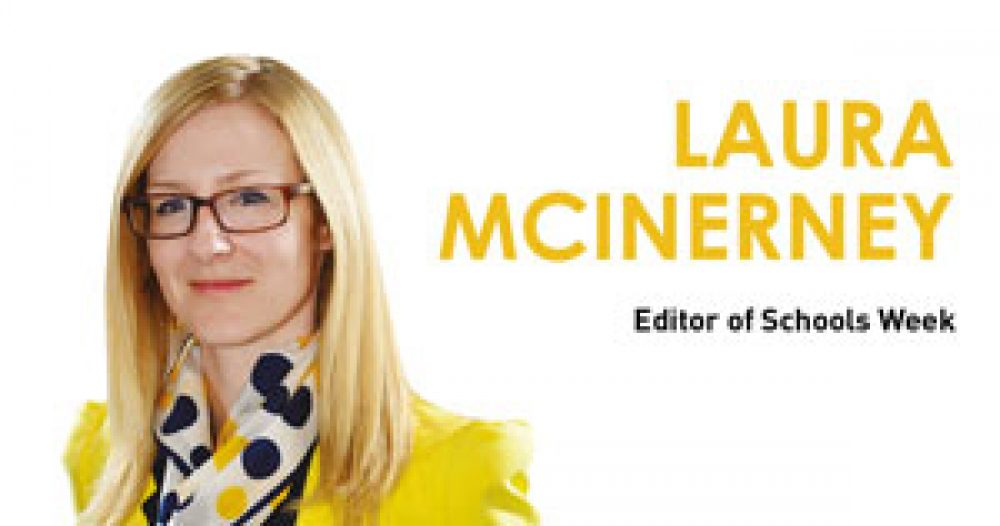One summer day in 1974, Phillippe Petit walked on a high-wire 400 metres (1,350 feet) above New York City on a cable running between the Twin Tower buildings.
He fumbled in his last moments, but lived to tell the tale having been made aware that tightrope walkers often fall in their last few steps.
In the film of the event, The Walk, Petit’s mentor explains why this happens.
“Most wire walkers, they die when they arrive,” says Papa Rudy. “Or, they think they have arrived. But they are still on the wire. If you have three steps to do, and if you do those steps arrogantly, if you think you are invincible, you are going to die.”
All of us have fallen prey to this at some point. Believing we are nearing a glorious victory we take our eye off the ball. We think we have arrived. We get arrogant. We throw it away.
It is rare in this editorial space that I commend the government for its actions, but not unheard of.
This week, two things are worthy of praise: the turnaround effort at Chadwick Academy, featured in this week’s profile, and also the education department’s attempt to make academy finances more transparent in future by proactively publishing the names of highly paid CEOs, consultancy costs, related-party transactions and reported frauds in an annual government report.
All of us have fallen prey to this at some point. Believing we are nearing a glorious victory we take our eye off the ball
Both are evolutions of policies the government should be proud to have implemented over the past few years.
The multi-academy trust model comes in for a lot of stick but, as the profile of Tuesday Humby, principal of Chadwick Academy shows, it helps to speedily get superb leaders into challenging schools and can rapidly improve life chances.
Academy transparency is also on the up. At the Oxford Governors’ Association last weekend I spoke about the genuine efforts of the Education Funding Agency to limit fraud in academies and pointed out that the malaise about some academy chiefs’ extraordinary wages only exists because we all now know how much money they earn – a situation not always mirrored in the maintained sector.
An incredulous audience member asked if I really, truly believed the EFA were trying to improve things.
“Yes,” I said, “but the problem is that back in 2010 to 2012, Michael Gove did the academy trust equivalent of bringing kids to a theme park and letting them run off without telling them the rules for when they had to be back at the bus.
“The education funding agency is now seeing the consequences of that. It is running around the park, half an hour from closing time, having already got most of the kids onto the bus, but still trying to grab the stragglers. The problem is that a glut of them are in a ride queue and refusing to budge, and one or two are at the top of the big dipper, hands in the air, shouting “you can’t catch me, you didn’t tell me the ruuuules.”
The report seems like an additional move to make that happen – but this is precisely when the final three steps matter
They really are trying and the report seems like an additional move to make that happen – but this is precisely when the final three steps matter.
Both policies – turnaround, and academy transparency – are nearly right. Admittedly, they need tweaks. It would indeed be helpful to know more about the way academy sponsors are chosen. Of course all reports into fraud should be published. Sure, we need to keep great leaders coming into the profession to keep up the supply of turnaround heads.
But, we are nearly there. The other side of the building is in sight.
Which is why Nick Gibb’s appearance at the select committee this week, in which he attempted to give evidence showing that selective schools will improve education, was such an utter disappointment.
He spoke at length about the work of non-selective schools that have transformed children’s lives, then tacked on nonsensical comments about grammars being needed to do it.
He said that children who didn’t get into selectives would be given a top education in rapidly improving comps; but failed to say, then, why grammars were needed at all.
It would also be disappointing if the DfE decides after its “dry-run” report that, actually, it wasn’t going to go ahead with the publication.
I have fingers crossed they won’t. But taking for granted that great things will happen simply because we see the possibility ahead of us is precisely the tightrope-walkers’ error. Let us not mess up the last three steps.







Your thoughts